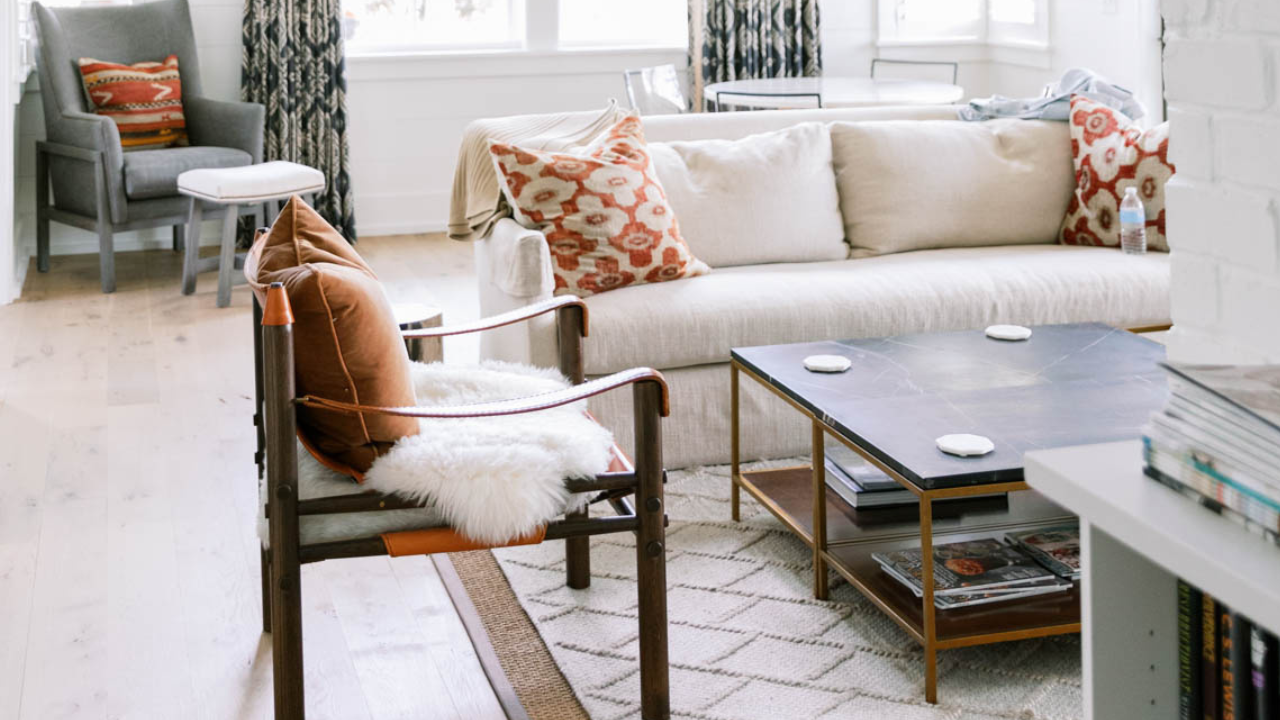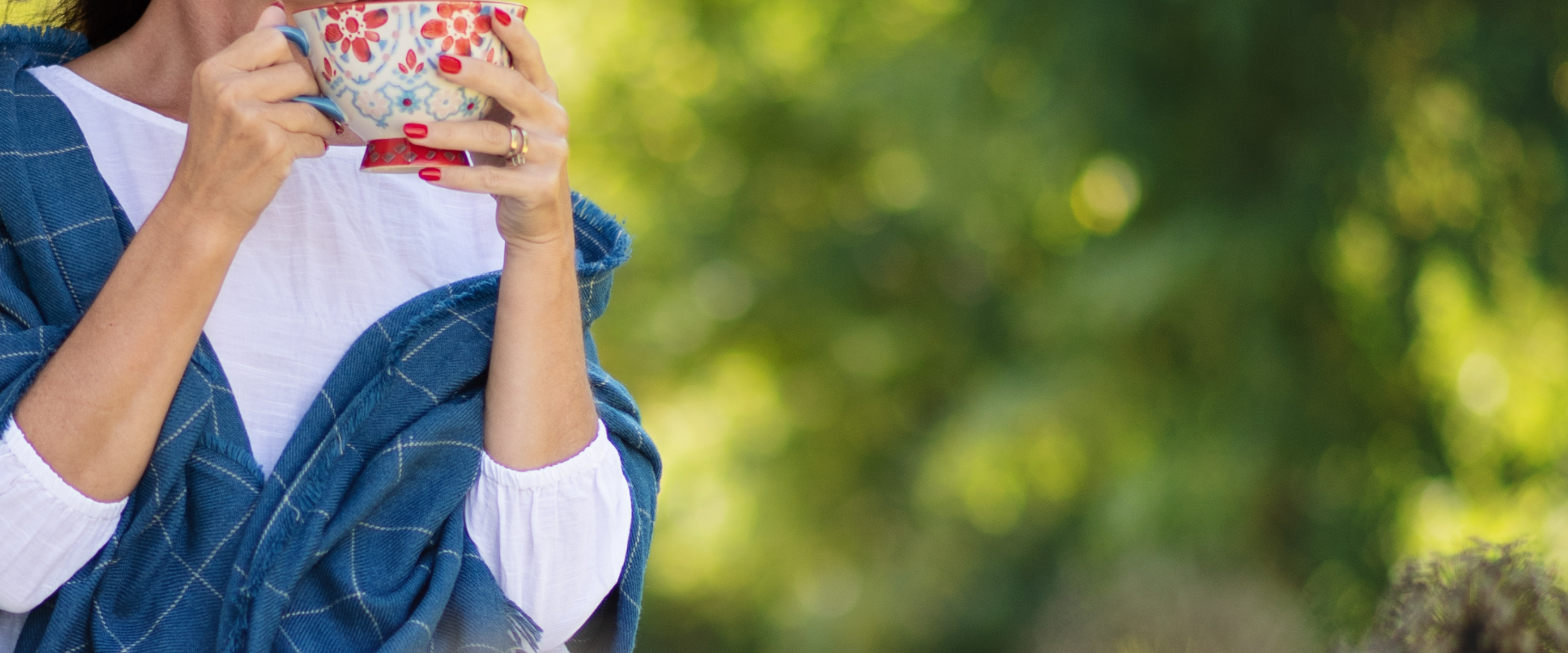20 Small Changes That Could Have a Big Impact on Your Health
Jun 01, 2023
I think we often underestimate the impact that small changes in our daily habits can have on our health and wellbeing.
Often I think we feel so overwhelmed by so much information...regarding food, chemicals, toxins...you almost feel scared to do anything because you just don't know if it's the right thing to do!
Here's the deal, and this is how I've coached hundreds of women, many of whom are breast cancer survivors like me, looking to reduce their risk of reoccurrence, to make these small, yet mighty changes...by simply looking at it with daily doable steps, makes it way less confusing!
Today, I'm here to show you how you can make small changes in your daily routine that can protect you from toxic chemicals that may have potentially harmful effects on your health.
These chemicals have been proven to cause diabetes, obesity, CANCER, heart disease, infertility as well as many other serious diseases.
After my breast cancer and BRCA2 diagnosis, I studied and researched A LOT, about the effect that toxic chemicals can have on our health.
Now, I had already changed a lot of things in my life, my food, my skin-care and make-up, sunscreen, to name a few BUT I knew that there were other things that I could change that would decrease my risk of getting this terrible disease (and others) again.
What you might not know about me yet, is that I made both myself and you a promise...to do everything in my power to reduce the risk of getting breast cancer and other serious diseases, that we consider standard in the world today.
If that sounds like something you'd like to do...read on.
Don't feel like everything has to change at once, remember, I didn't change everything in one go...we strive for progress not perfection.
Keep reading because at the end, I'm going to share your best next step, so that you know exactly where to start making these changes without feeling swamped and anxious about where to start.

In the Home
1. Choose a safer detergent. Skin is your body's largest organ and it absorbs everything you put on it, including the detergent you use to wash your clothes, sheets and towels. Many detergents are made with potentially harmful ingredients.
2. Choose glass over plastic. Many plastics contain a chemical called Bisphenol A (commonly known as BPA) the FDA has issued health warnings associated with this chemical, linking it to primarily endocrine (hormone) disruption, influencing things like growth, cell repair, fetal development, energy levels and reproduction. One place you'll commonly find these BPA's are plastic water bottles. Choose glass or stainless steel for a healthier alternative.
3. Take your shoes off at the door. Wearing your shoes inside can unnecessarily increase your exposure to dust, lead, bacteria and pollutants.
4. Choose fragrance-free or essential oil scented home products. We all want our homes to smell fresh and inviting, but synthetic fragrances are often full of chemical compounds linked to common allergens and hormone disruption. You might wonder, but why does a product just say "fragrance"? Well, because fragrance is considered a trade secret and the ingredients are therefore protected. So there is no way of knowing how safe or harmful they may be. Think of things like air fresheners, carpet fresheners, candles to name just a few!
5. Swap dryer sheets for wool dryer balls. Dryer sheets are typically a bundle of toxic chemicals and very strong fragrance. My hubby was concerned when we made this particular swap, because he is not a fan of static on his clothes...who is, lol? But I have to say, the wool dryer balls work really well and you can even add a few drops of your favorite essential oil to them if you'd like.

In your Food
1. Buy Organic. I can hear you yelling now, but that's so expensive!!! I promise it doesn't have to be...
Karin's Hack for when to choose organic. If you are eating the whole fruit or vegetable, including the skin...then choose organic (eg. strawberries, apples, tomatoes, zucchini). If the fruit or veg has a thick skin and you don't eat it, this is a safer option to choose conventional, because the part that you are eating has been better protected from harmful pesticides.
A great resource is www.EWG.org you'll discover something called the Dirty Dozen (the foods to buy organic) and the Clean Fifteen (the foods that typically are less affected by pesticides).
2. Shop local. Check out your local farmers market or CSA (community supported agriculture). Many local farms use organic methods to farm, but cannot afford the expense of getting certified. Ask about their farming methods, most farmers are happy to share.
3. Ditch the microwave. Microwaves distort a foods chemical structure, stovetop and oven-based cooking methods are much safer alternatives. You might be thinking, how do you live without a microwave? LOL, I get it...I used to have one, but now we don't even own one. I few small tweaks to how you eat and reheat food is all it takes.
4. Replace your non-stick pans with stainless steel. The chemicals used for non-stick coating can release chemicals at high temperatures. These can work their way into your food and the air.
When I suggest this change, most often I'm met with the response "but Karin, they are so easy to clean!!"
Karin's Hack don't spend time trying to scrub your stainless steel or cast iron pan - simply put water in it and boil...gently scrap with a wooden spatula and all of the baked on food, just releases immediately.
5. Give Meatless Monday a try. Eating more plants has been shown to decrease risk of obesity, diabetes, cancer and chronic illness. Having said that, a completely vegetarian diet is not suitable for everyone. This is a great place to start the shift to including more plants based proteins into your life.

Healthy Living
1. Take shorter showers. The longer the shower the more water and energy are depleted. There are typically many chemicals in your water that have been proven to be harmful, like fluoride.
2. Walk or bike when possible. Not only does this reduce your carbon footprint, but it also increases your cardiovascular health, helps to reduce stress and generally makes you feel better.
3. Meditate. This can take on many forms, but I urge you to try because the benefits of meditating have been proven over and over, helping to reduce stress, anxiety, blood pressure, and even change your brain function and productivity.
Calling all of my pink sisters...who else suffers with Chemo brain or just BC Survivors brain fog?
4. Adding some plants for cleaner air. Knowing that the average American spends 70% of their time in their home...this is really crucial. Plants are an easy way to help purify the air inside our homes. Look for bamboo palms, spider plants and aloe vera to name a few.
Karin Hack I also like to open all of the windows in the house at least every other day for about 15-30 mins to clear out any stale air.
5. Use reusable shopping bags. Whenever I think about this, I flash back to when I was a kid going food shopping with my mum (in the UK), she always had those string shopping bags, where everything gets caught up in the holes lol.
Plastic bags are destructive to the environment, suffocating wildlife, filling up landfills and blocking soil nutrients.

Beauty
1. Use safer sunscreen. Many sunscreens contain harmful chemicals, some that even are known carcinogens. Choosing a mineral sunscreen that shields the skin from both damaging UVA & UVB Rays is a safer choice. My Fave Sunscreen*
2. Wash your hair less often. I've been seeing a lot about this right now. Not only does it use less water and less product, but also when you give your hair enough time to naturally produce oils, instead of stripping them by shampooing too frequently, it will lead to less oil production.
3. Choose cloth instead of paper. Did you know that tree pulp, used to make tissues and paper towels, is bleached before being used? Try using cloth for drying your hands, cleaning or wiping your nose.
Karin's hack, at home, we use cloth dish cloths as napkins. You can find these very inexpensively at places like Home Goods & TJ Maxx.
4. Know the ingredients. Information is powerful, but can also be overwhelming. That's why I research extensively before making my purchasing choices...that's also why I share my choices with you, to make it a little less overwhelming!!
You can check out My Favorite Things HERE.
5. Choose essential oils instead of perfume. Perfume usually contains synthetic fragrances - blends of various chemical compounds, many of which are common allergens or have links to hormone disruption. Essential oils are naturals products, extracted from plants with aromatic properties.
Now you know about some changes you can make...now it's time to learn where it's best for you to start making those changes.
That means discovering if what you're using now is harmful and getting the guidance you need to make a safer swap.
I promised to share your next best step...and this is it... in Module 2 of my self-paced online program Essentials 4 Thriving, you'll get my checklist and step-by-step guide to Reducing Toxins in your home.
CLICK HERE FOR ALL THE DETAILS & START BREATHING EASIER AT HOME
Ready for things to feel just a little easier?
If you’re tired of feeling “on edge,” always bracing for something to go wrong, or wondering why you still don’t feel like yourself… you’re not alone.
My Stop Waiting for the Other Shoe to Drop guide gives you tiny, doable shifts to help your body exhale again...without adding more to your plate.


